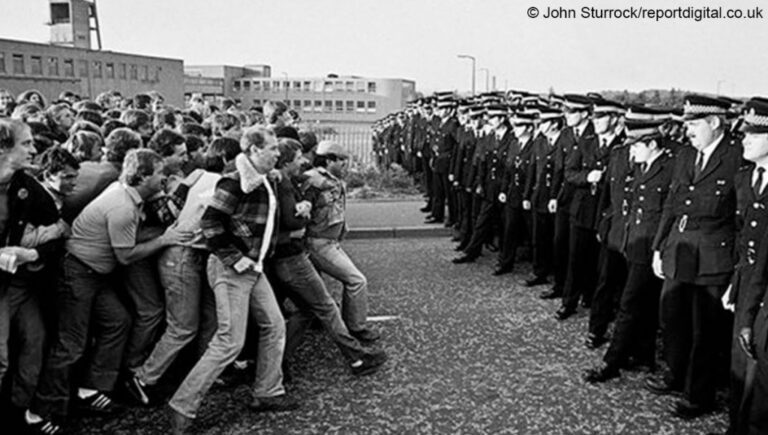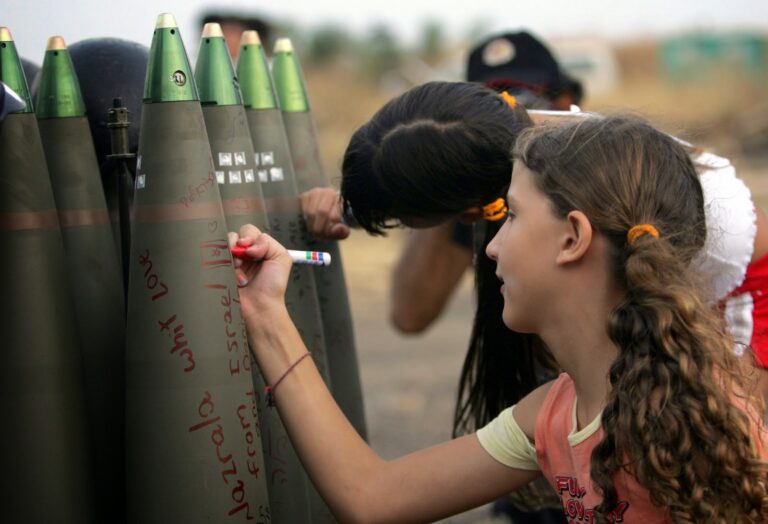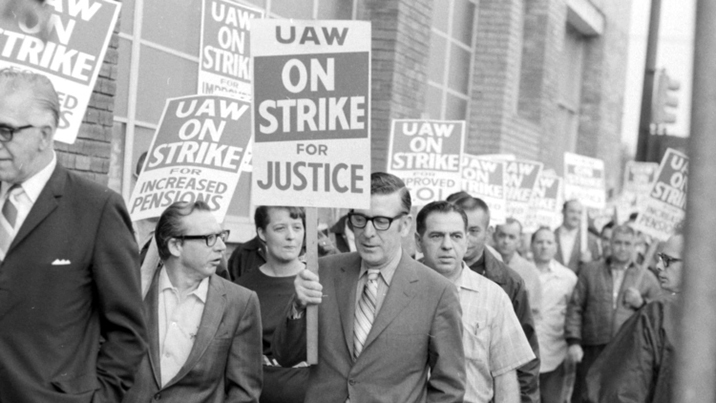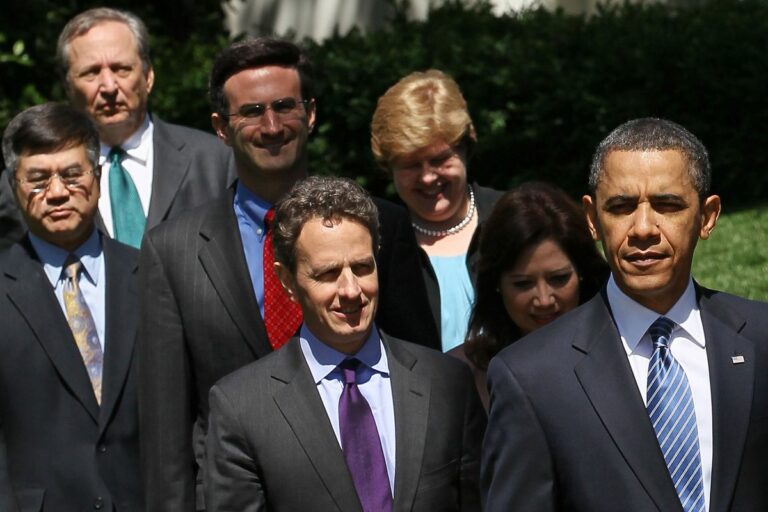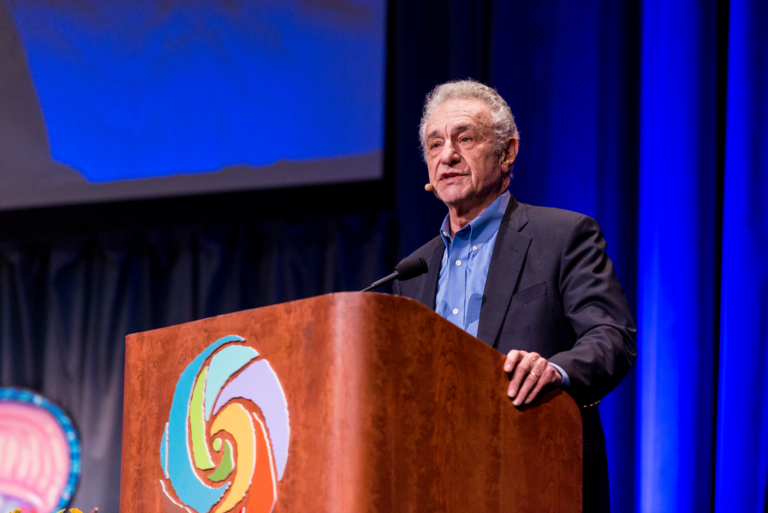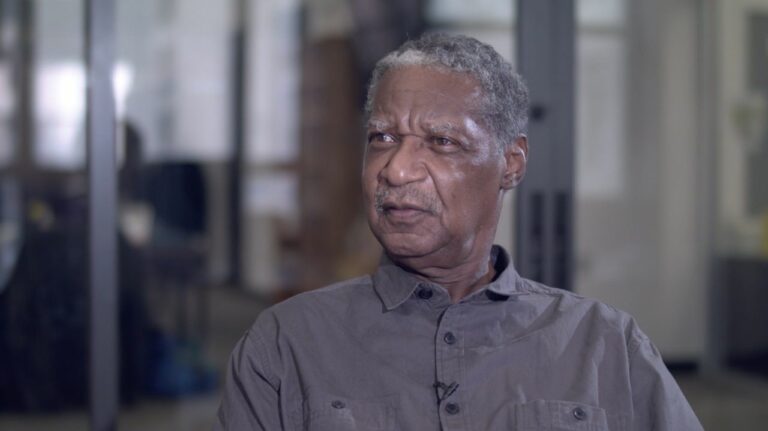This is an episode of Reality Asserts Itself, produced on April 30, 2015. On Reality Asserts Itself, former CIA official Mr. Kiriakou says that VP Cheney chaired a morning phone call where the Joint Chiefs and CIA openly argued against the invasion of Iraq – a decision made in the summer of 2002.
PAUL JAY, SENIOR EDITOR, TRNN: Welcome back to The Real News Network. We’re continuing our series of interviews on Reality Asserts Itself with John Kiriakou. Thanks for joining us again.
JOHN C. KIRIAKOU, FMR. CIA OFFICER: Happy to do it.
JAY: Now, before we get going, for those of you that saw the earlier argument we had about it, whether Vice President Cheney would leave the back door open for the 9/11 attacks, and you were saying that I just can’t believe one of our leaders would do that, can you believe one of our leaders would lie outright and start a war that might have cost a million of Iraqis’ lives?
KIRIAKOU: Yes.
JAY: Why that and–?
KIRIAKOU: Because I think that there’s this horrible belief among many of our leaders here that the lives of foreign nationals don’t count or aren’t worth American lives. And to kill a million Iraqis, 50,000, 100,000, a million, I don’t think they really care.
JAY: Not Americans.
KIRIAKOU: Not Americans. Mhm. I mean, look at it this way. When I was a young junior CIA analyst, I had weekend duty. And when you have weekend duty, you review all of the incoming traffic over the weekend for every country in the Middle East and South Asia. And I reported one weekend that two Israelis had been killed in the West Bank in an attack by a Palestinian farmer. This was news, right? And after I gave my presentation on Monday morning and I reported that these two Israelis had been killed, the Sri Lanka analyst came up to me and said, you know how many Sri Lankans were killed in the war this weekend? Sixty. And that’s not news, because Sri Lankan lives aren’t worth Israeli lives.
JAY: ‘Cause Israeli lives are almost American.
KIRIAKOU: They’re almost American. And he was right. And that stuck with me all these years. And I think that’s the view of many of our leaders, too. If you’re not American, your life really isn’t important enough to worry about.
JAY: This is the theory of a chosen people.
KIRIAKOU: Mhm. It’s American exceptionalism.
JAY: I’ve always thought this is another–I’m just curious of your reaction. I used to run a debate show in Canada. And about a year before the Iraq War began, Charles Krauthammer was a guest on the show–
KIRIAKOU: A-ha.
JAY: [crosstalk] part of the debate. And we were debating sanctions in Iraq. And he said something that stuck with me. I remember that after the war began–and then it really hit me what perhaps the significance of it was. Now, Krauthammer, for people that don’t know, is a conservative pundit and very, very connected in Washington, has access to the most senior people, particularly in the Bush administration, right? So, a year before the Iraq War begins, he says, in debating the sanctions, well, we have to do the sanctions and this and that. But yes, he says, I agree the sanctions are not very good. We should have gone in, we should have finished off the first Gulf War and got rid of Saddam then. He says–and this the key line–but now it’s too late, because he has weapons of mass destruction [crosstalk] a year before. So it really–it hit me that when the inspectors are saying, leading up to the war, that there’s no weapons, there are no weapons, that’s what they wanted to know, because they needed to know there were no weapons so that they could invade. Who’s going to invade an Iraq with, according to Colin Powell, SCUD missiles surrounding Baghdad, aimed at Israel, with biological weapons? You’re going to invade under those circumstances? You’re going to invade where he might have some kind of nuclear weapon?
KIRIAKOU: Right.
JAY: I mean, what do you think? They actually–they wanted to know there was nothing. They were convinced there was nothing. And that’s the only way they could actually launch the invasion.
KIRIAKOU: I have a theory about that. And I have no proof of this, but I was–at the CIA, I was essentially Saddam Hussein’s biographer for four years. I was in what used to be called the Office of Leadership Analysis, and it was my job to do these long-distance psychological profiles on Iraqi leaders. In 1996, Saddam’s son-in-law, Hussein Kamel al-Majid, defected to Jordan. Hussein Kamel was Iraq’s minister of industry and military industrialization. He was the father of the Iraqi nuclear program. And he was probably going to be Saddam’s successor. He was married to Saddam’s eldest daughter, Raghad. So he and his brother, Saddam Kamel, defected to Jordan in the mid ’90s. And they were put up in a palace by King Hussein. There were press reports that said that CIA officers had flown out to Jordan to debrief Hussein Kamel and Saddam Kamel (Saddam Kamel was in charge of Saddam’s bodyguard unit) and that these brothers had given these CIA officers the kitchen sink, the crown jewels of the Iraqi weapons of mass destruction programs–biological–.
JAY: What year was this?
KIRIAKOU: This was ’96. Biological, chemical, and nuclear weapons. In fact, there was no such debriefing. Hussein Kamel never wanted to meet with the CIA. He had no love of the CIA. He was afraid that Saddam’s son Uday was going to kill him so that Uday could become the next president of Iraq. So these rumors got started in the press that Hussein Kamel was telling the Americans where all the weapons of mass distraction were and that the Americans would then tell the UN so the UN could go in and find these weapons. There was evidence in the late ’90s that the Iraqis began destroying much of their weapons of mass destruction. And I think it was a result of Hussein Kamel’s defection, so that by the time George W. Bush is elected president, there are no weapons of mass destruction. They’re all long gone. Now, Saddam, to save face–which is very, very important in Arab culture–Saddam couldn’t go public and say, we have no weapons of mass destruction. He also couldn’t say, we’ll let in any UN inspectors; you can walk around my palace and you can walk through our laboratories. He couldn’t say that, because that would make him look weak. So he had to say exactly the opposite to look tough. But at the same time, he didn’t understand that George W. Bush needed to look tough, too. He had a reelection campaign coming up in 2004. So he had to look like he was strong and he was going to go to the mat with Saddam. And so they both misread each other from 2001 to 2004.
JAY: This is a little twist of another interpretation on this is that–go back to what you were saying earlier–they wanted to invade Iraq for long time.
KIRIAKOU: I always thought that the Bush family wanted to invade Iraq since the attempt on H. W. Bush’s life.
JAY: [crosstalk] Saddam’s equation is, I need to make them think I have weapons of mass destruction–
KIRIAKOU: So they don’t invade me.
JAY: –so they don’t invade me.
KIRIAKOU: Yeah.
JAY: And once they find out–and he’s right, ’cause once they find out through Hans Blix and they find out through the inspectors there’s nothing there, that’s when they invade.
KIRIAKOU: Mhm. Mhm. I think that’s exactly what it was. It was all predetermined. I’m convinced of that. I have a passage in my book where I come back from Pakistan and I’m told that in this new job that I have, I’m going to have to be read into certain top-secret compartments. And I asked my boss, who was one of the associate deputy directors of the CIA, well, what’s the issue? And he said, I can’t even tell you what issue we’re going to work on until you go sign the secrecy agreements. So I walk upstairs to the floor that houses the Middle East operations offices and knocked on the door. I said, I’m here to sign my secrecy agreements. So he has me sign–it was six different secrecy documents. And finally I said, alright, well, what’s up? And he says, well, in March we’re going to invade Iraq, we’re going to overthrow Saddam Hussein, and were going to open the world’s largest air force base so that we can move all of our air assets out of Saudi Arabia and deprive Osama bin Laden of his ability to say that we’re polluting the land of the two holy mosques. And I was so stunned, all I could think to say was, but we haven’t caught bin Laden yet. Why would we overthrow Saddam Hussein when bin Laden is still running around? And he put up his hands and he said, the decision’s been made, the White House has already made the decision.
JAY: When is this?
KIRIAKOU: This is August 2002. I learned later that my boss had been told in March 2002 that we would invade Iraq in March 2003. So the decision had been made early on in the Bush presidency.
JAY: The day after the war in Iraq began, there were massive protests around the world. On the weekend of March 22-23, 2003, the media reported 150,000 protesters in Barcelona, but many peo ple said it was about up to 1 million; more than 100,000, maybe 500,000 in London–and I heard there closer to 600,000 or 700,000; in Paris, at least 100,000–again, maybe more like half a million; 150,000 protesters in German cities; and another forty–up to 90,000 in Lisbon, 40,000 in Bern, 20,000 in Greece, 250,000 in New York City–at least 250,000 have said to be, again, closer to half a million. Altogether, the estimates are perhaps as many as 20 million people protested against the war. You’re working away. And where are you at the time of the Iraq War?
KIRIAKOU: At headquarters.
JAY: Does the fact 20 million people came out in–I think it’s the largest protest in the history of the human species–does it get through to you guys?
KIRIAKOU: No. No. To be perfectly honest with you, I don’t have any memory of those protests at all.
JAY: In fact, off-camera, just a few seconds ago, you told me this is the first time you ever heard of it.
KIRIAKOU: Yeah. It’s the first time that ever heard of it. I’m ashamed to even say that. But no. Public opinion has absolutely no bearing whatsoever on what happens inside the CIA. None whatsoever.
JAY: Do you think it had–it also seemed to have no effect on what happened in terms of the White House and U.S. foreign policy, either.
KIRIAKOU: No, not really. But let me tell you something very important. There were a lot of protests inside the CIA that we were going to get wrapped up in Iraq. Nobody wanted to go into Iraq. We were obsessed with trying to find Osama bin Laden. And so I went back to the office after I signed these secrecy agreements and I complained to my boss and I said, Iraq? Really? This is what we need to do right now? Invade Iraq? And he said, listen, I agree with you. Everybody agrees this is a mistake. But this is the policy, and our job is to support the policy. That’s the job of the CIA. And I remember participating in these classified video teleconferences, and there were very clearly defined lines: the groups that wanted to do this and the groups that didn’t want to do this. I address this in my book. On the pro-war side: clearly and obviously led by the office of the vice president, okay? Vice President Cheney chaired most of these meetings, these video teleconferences that we did. And we did them almost every morning. But Cheney was clearly–.
JAY: He chaired them every morning?
KIRIAKOU: Sometimes it would be [Addington] and sometimes it would be Scooter Libby, but usually it was Cheney. The office of the Secretary of Defense, OSD–that was Rumsfeld–completely joined at the hip with Cheney on Iraq.
JAY: And what was the agenda? And who’s in these [meetings (?)]?
KIRIAKOU: Daily updates, intelligence briefing, policy discussion, who’s doing what, who’s handling what issue, who’s traveling where, this kind of thing.
JAY: And this is all in the leadup to the war.
KIRIAKOU: Yes, this was all in the leadup to the war. So you have the office of the vice president, office of the secretary of defense, and the National Security Council pro-war.
JAY: Isn’t it kind of unusual, that the [vice] president plays such a role?
KIRIAKOU: This was very unusual. It was very unusual. And on the other side, on the antiwar side, you had the CIA, the State Department, and the Joint Chiefs of Staff. The Joint Chiefs of Staff wanted no part of this Iraq War. They said that this was foolhardy, it was an unnecessary war, it was a war of choice. I had a great deal of respect for the Joint Chiefs when I watched them argue why we really shouldn’t be involved in this, this shouldn’t be happening, we need to focus on al-Qaeda, and we need to focus on finding Osama bin Laden. But like I said, the decision had been made.
JAY: And how does–on these conference calls, you would have–Joint Chiefs would be arguing with Cheney?
KIRIAKOU: Oh, yeah.
JAY: And how does Cheney respond?
KIRIAKOU: I’ve issued an order; you’re going to take the order. And that was it.
JAY: He’s not the commander-in-chief.
KIRIAKOU: No, but, I mean, we were all supposed to just accept the fact that the commander-in-chief was the one who would give the ultimate order, that he was speaking on behalf of the commander-in-chief.
JAY: And did the president ever get directly involved in any [crosstalk]
KIRIAKOU: I never, ever saw the president involved in any of these video teleconferences. No.
JAY: Does anyone ever stop to question whether Cheney’s really authorized to do all of this?
KIRIAKOU: Well, I mean, you would think that the president would see it on the evening news and call him on the carpet if he didn’t want him doing it.
JAY: I suppose, yeah. So what–in terms of you personally, your vision of Americanism and your vision of your role and what and who are you fighting for, what is all this doing to you?
KIRIAKOU: Well, things began to change for me after September 11. Iraq is what really did it for me. I had a very, very close friend, one of my best friends from high school, who recently passed away, and he was a lieutenant colonel in the Army reserves. And so he emailed me the day after we began the invasion. And that’s when the press was using the term “shock and awe”. So my friend told me in this email that he was both shocked and awed, and wasn’t this display of American military might so great to see? And I emailed him back and I said, I’m sickened by it. This was a war of choice. People are going to die because of this. We didn’t have to do this. In the meantime, we should be using this money and these resources, military manpower resources, to find Osama bin Laden and to bring him to justice for the crime that he committed against the American people.
JAY: Now, when you say this is a war of choice, you’re saying that America was not under imminent threat of attack.
KIRIAKOU: Absolutely not. The Iraqis posed no threat to us–not even an existential threat. There were no weapons of mass destruction. And even if there were, the Iraqis had no delivery system. Now, if this was to protect Israel, I would posit that Israel can defend itself.
JAY: That makes this a war of aggression.
KIRIAKOU: Yes, I believed it was a war of aggression.
JAY: That makes it, according to the Nuremberg trial [crosstalk] KIRIAKOU: A war crime. JAY: The supreme war crime.
KIRIAKOU: It’s a war crime.
JAY: It’s a war crime.
KIRIAKOU: See, but we’re the winners, and the winners are the ones who write the history books and decide who gets prosecuted for what.
JAY: President Obama, you would think–certainly someone who said he was against the war–would have had a responsibility not just to focus on the issue of torture, which he didn’t,–
KIRIAKOU: Which he didn’t.
JAY: –but to prosecute Bush-Cheney for war crimes.
KIRIAKOU: But what makes you think that he would even entertain something like that?
JAY: I didn’t.
KIRIAKOU: No.
JAY: I didn’t.
KIRIAKOU: No. I was never sanguine.
JAY: But it’s such a violation of international law, number one, the war crime of the war, but it’s also a violation of international law not to prosecute these war criminals.
KIRIAKOU: See, this is–.
JAY: And the media never says a word about this.
KIRIAKOU: No, the media never says a word. The media just gets sucked into the whole propaganda machine and dragged along. We just decided we didn’t like these people, and so we were going to go in and kill them. And that’s exactly what happened.
JAY: So, in the next segment of our interview with John, we’re going to pick up his story: 2002 he gets posted to Pakistan, becomes the head of counterterrorism. So please join us for the continuation of Reality Asserts Itself on The Real News Network.
Never miss another story
Subscribe to theAnalysis.news – Newsletter
“John Chris Kiriakou (born August 9, 1964) is an American author, journalist and former intelligence officer. Kiriakou is a columnist with Reader Supported News and co-host of Political Misfits on Sputnik Radio.
He was formerly an analyst and case officer for the Central Intelligence Agency (CIA), senior investigator for the Senate Foreign Relations Committee, counterterrorism and a consultant for ABC News. He was the first U.S. government official to confirm in December 2007 that waterboarding was used to interrogate al-Qaeda prisoners, which he described as torture.
In 2012, Kiriakou became the first CIA officer to be convicted of passing classified information to a reporter. He pleaded guilty and was sentenced to 30 months in prison.”











